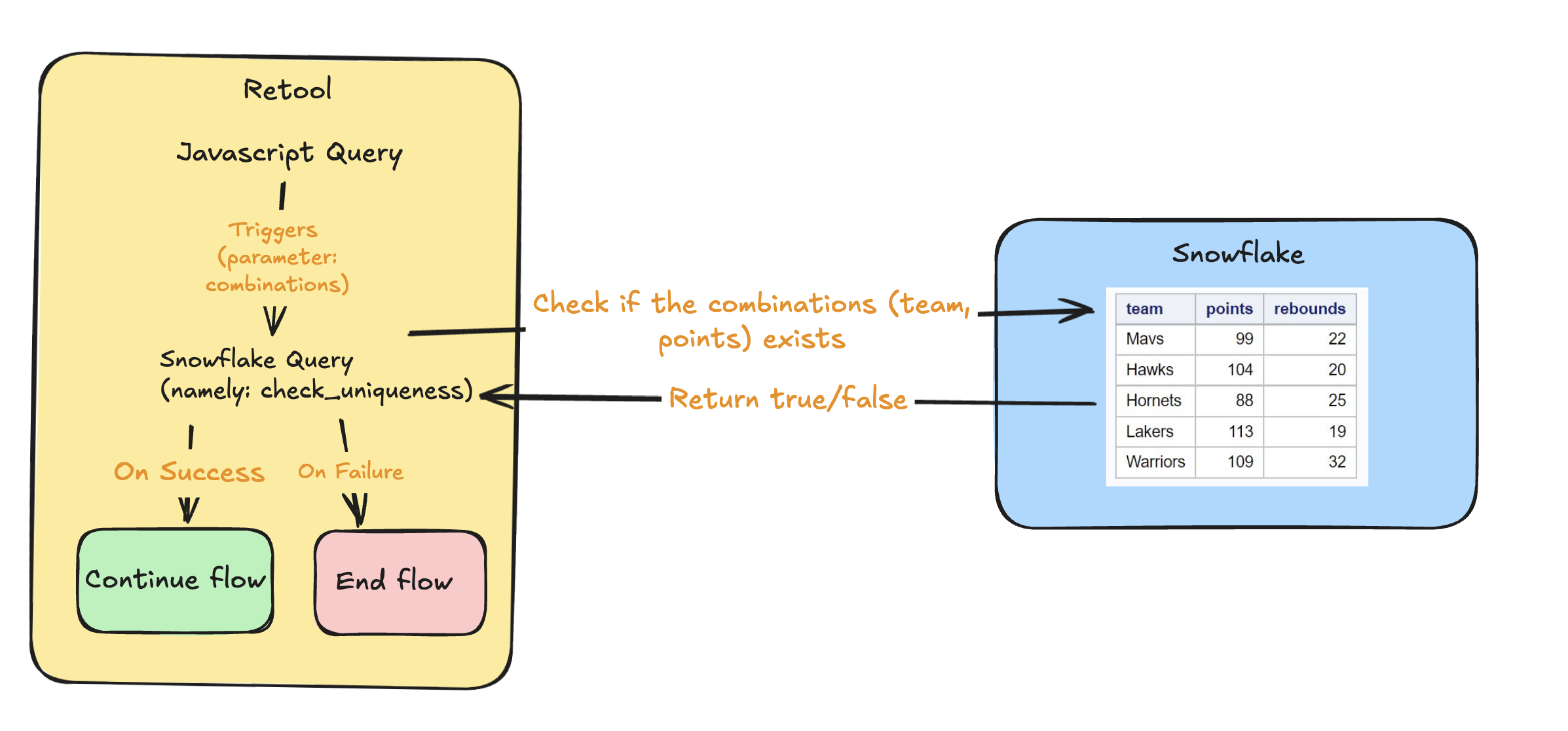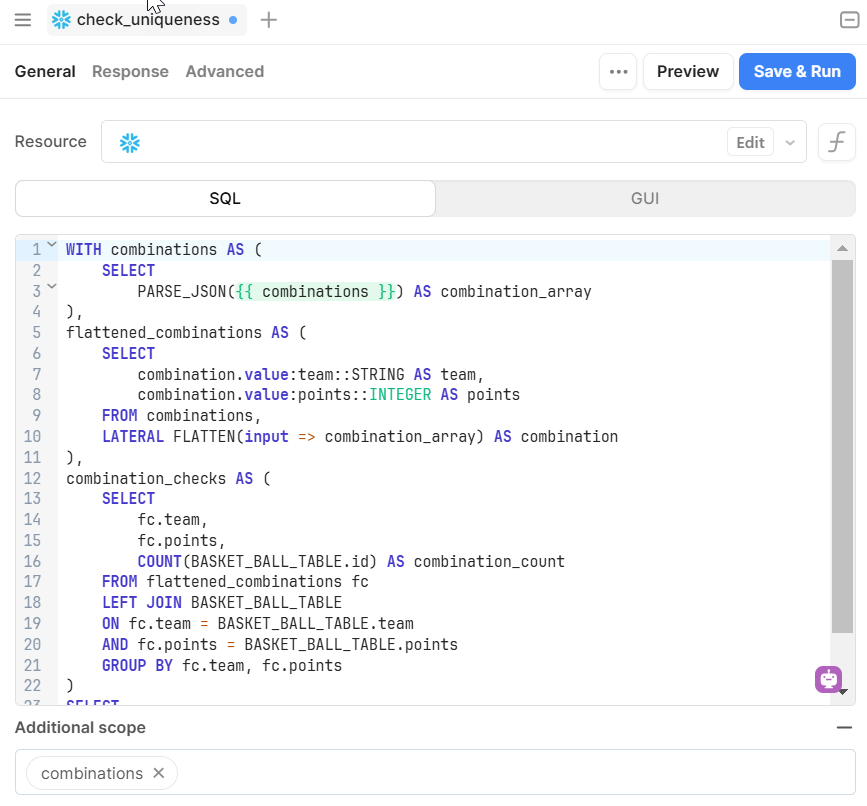Enforcing Snowflake Unique Key Constraint in Retool (No More Duplicate Data!)
 Sion Kim
Sion Kim
Introduction
Retool is an amazing visual wrapper for Snowflake. It offers query abstractions, such as GUI mode and dependency for success/failure.
But as we dive into complex applications, we encounter the limit of Snowflake: Snowflake doesn’t enforce the UNIQUE constraint on standard tables. How would we build a solution in Retool that can enforce such constraint on insert/update operations, and furthermore perform the constraint check on multiple records in a cost efficient manner?
| Feature | Hybrid tables | Standard tables |
| PRIMARY KEY constraints | Required, enforced | Optional, not enforced |
| FOREIGN KEY constraints | Optional, enforced (referential integrity) | Optional, not enforced |
| UNIQUE constraints | Optional, enforced | Optional, not enforced |
| NOT NULL constraints | Optional, enforced | Optional, enforced |
Solution
Let’s suppose we have a table with 4 columns (team, points, rebounds; auto-generated PK) and want to ensure uniqueness on (team, points).
To implement this in the Retool app, we would need 3 things:
Javascript query to trigger the Snowflake query
Snowflake query to check uniqueness
Event handlers (success, failure)
Here’s the order of sequence:
Javascript query triggers the Snowflake query along with the parameter
Retool constructs the Snowflake query dynamically when triggered; in this case,
combinationswill be evaluatedDepending on the result, success/failure event handlers will run

Here are the Javascript and Snowflake queries:
Snowflake (check_uniqueness). Keep in mind, combinations has to be defined in an additional scope.
Time complexity of this query is O(m + N) where m = number of elements in the JSON array (and hence rows produced by FLATTEN) and N = number of rows in BASKET_BALL_TABLE.

WITH combinations AS (
SELECT
PARSE_JSON({{ combinations }}) AS combination_array
),
flattened_combinations AS (
SELECT
combination.value:team::STRING AS team,
combination.value:points::INTEGER AS points
FROM combinations,
LATERAL FLATTEN(input => combination_array) AS combination
),
combination_checks AS (
SELECT
fc.team,
fc.points,
COUNT(BASKET_BALL_TABLE.id) AS combination_count
FROM flattened_combinations fc
LEFT JOIN BASKET_BALL_TABLE
ON fc.team = BASKET_BALL_TABLE.team
AND fc.points = BASKET_BALL_TABLE.points
GROUP BY fc.team, fc.points
)
SELECT
combination_count = 0 AS combination_status
FROM combination_checks;
JavaScript. Construct JSON with JSON.stringify from the table component, namely table_basketball. Then, trigger the Snowflake query check_uniqueness with the combinations variable passed as an additional scope.

// Convert an array with an object to a JSON string with 2-space indentation
const combinations = JSON.stringify(
table_basketball.data.map((row) => ({
team: row.TEAM,
points: row.POINTS,
})),
null,
2
);
const result = await check_uniqueness.trigger({
additionalScope: {
combinations: combinations,
},
});
Conclusion
In this article, we explored how to enforce UNIQUE constraints in Snowflake using Retool, despite Snowflake's limitations with standard tables. The solution involves triggering a Snowflake query via JavaScript, dynamically constructing the query, and using event handlers based on query results. It’s notable that the uniqueness check can cause delays, which downgrades UX, but this is a negligible trade-off.
Subscribe to my newsletter
Read articles from Sion Kim directly inside your inbox. Subscribe to the newsletter, and don't miss out.
Written by

Sion Kim
Sion Kim
Associate Analyst at Reinsurance Group of America